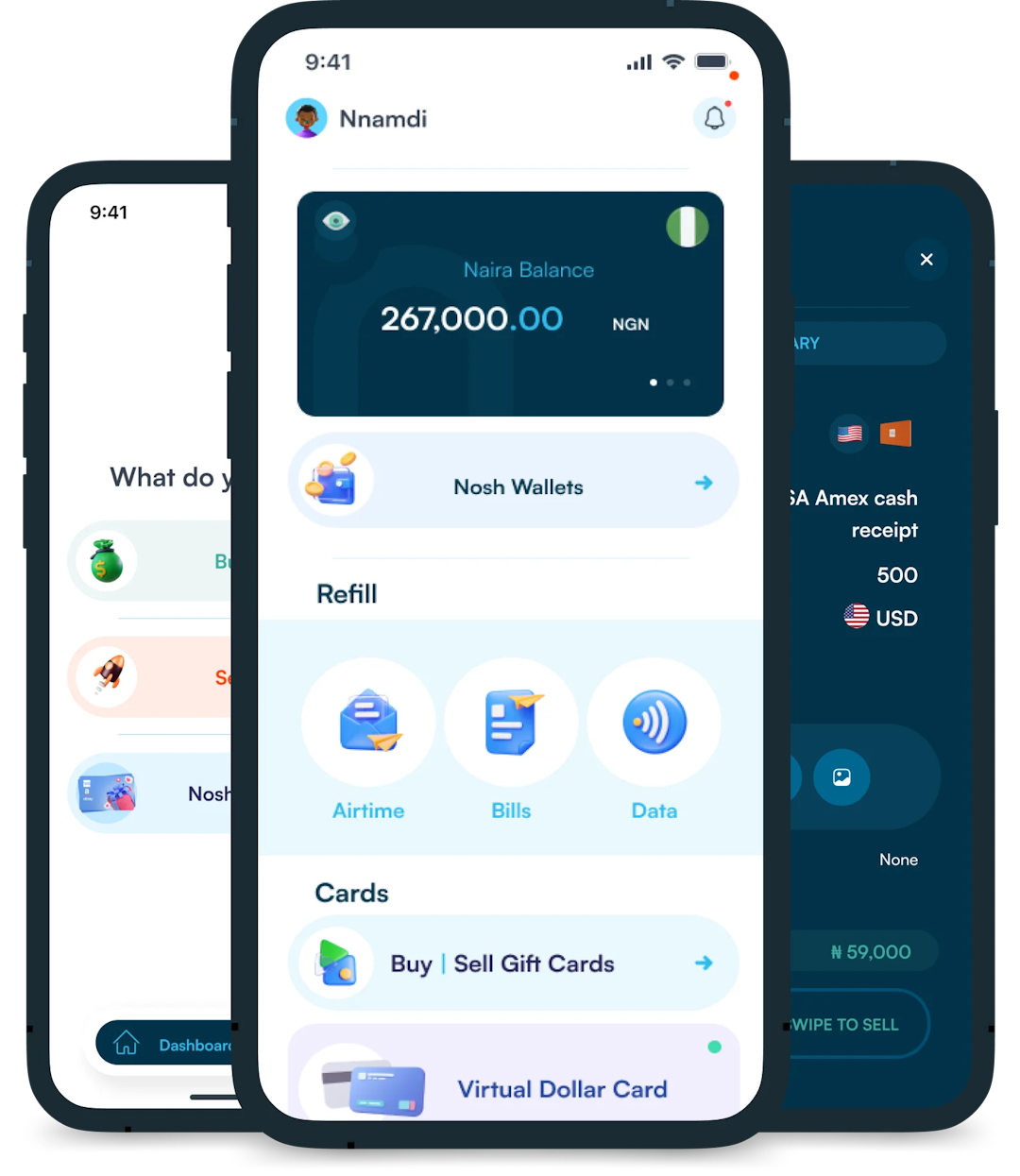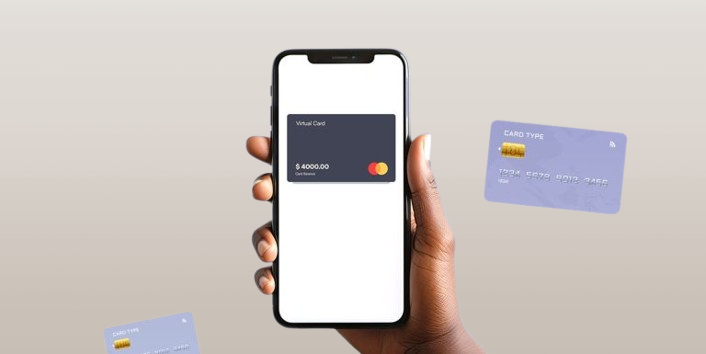
Virtual dollar cards have become increasingly popular in Nigeria, offering a convenient and secure way to make online payments in USD. These digital cards provide a solution to the limitations...

Virtual dollar cards have become increasingly popular in Nigeria, offering a convenient and secure way to make online payments in USD. These digital cards provide a solution to the limitations and restrictions often faced when using traditional naira-denominated cards for international transactions. With a virtual dollar card, you can shop on international e-commerce platforms, pay for subscriptions to streaming services, and handle other online transactions that require USD without the need for a physical card. They can also be used for local transactions, making them a versatile tool for managing your finances.
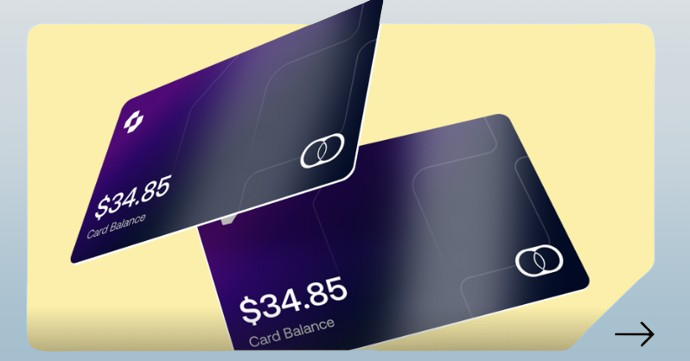
A virtual dollar card is a digital card that functions like a physical debit or credit card but exists only in electronic form. It is typically issued by fintech companies and is linked to a digital wallet or account. These cards come with a unique card number, expiration date, and CVV code, just like a physical card, allowing you to make secure online payments.
Traditional Nigerian debit or credit cards often face limitations when it comes to international transactions. These limitations include unfavorable exchange rates, high fees, and sometimes outright restrictions on international spending. Virtual dollar cards offer a solution to these challenges, providing several benefits:
Virtual dollar cards are also a key tool for financial inclusion in Nigeria. They enable those without access to traditional banking services to participate in the global economy, opening up opportunities for online businesses, freelancers, and individuals who need to make or receive international payments.
However, it’s important to be aware of potential drawbacks, such as the possibility of card declines due to insufficient funds, exceeding transaction limits, or security checks.
Getting a virtual dollar card in Nigeria is a simple process. Here’s a general overview of the steps involved:
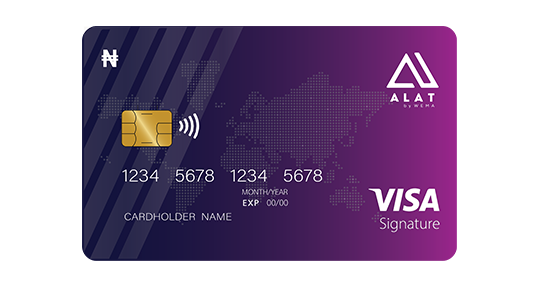
There are several providers of virtual dollar cards in Nigeria, each with its own features, fees, and benefits. It’s important to compare fees and exchange rates across different providers to find the most cost-effective option. Here are some of the most popular options:
ALAT by Wema Bank is a digital banking platform that offers a virtual dollar card. It is a prepaid card that can be used to purchase goods and services on websites and applications that accept Mastercard or Visa dollar cards.
| Fee Type | Amount |
|---|---|
| Card creation fee | $1.5 (one-time fee) |
| Monthly maintenance fee | None |
| Funding fee | 2% + N100 (per transaction) |
| Transaction fee | 0% (no fee) |
| Spending limit | $20,000 maximum on card |
ALAT is known for its reliability and user-friendly design12. Users appreciate the seamless currency conversion and the ability to use the card on international platforms. However, some users have noted that the exchange rates can be higher than the black market rate. There have also been reports of delays in receiving refunds.
Payday is a fintech firm that offers global digital accounts in over 20 currencies, including USD, EUR, and GBP. Each account is linked to a Payday Mastercard, which can be used online anywhere Mastercard is accepted. Payday also offers Visa and Verve virtual cards.
| Fee Type | Amount |
|---|---|
| Card creation fee | $5 for Mastercard and Visa, Free for Verve |
| Monthly maintenance fee | None |
| Funding fee | None |
| Transaction fee | $1 for Mastercard and Visa transactions below $100, $2 for transactions above $100, Free for Verve |
| Spending limit | $10,000 per month for Mastercard, $3,000 per month for Visa, Minimum funding of N500 when creating the Verve card |
Payday is praised for its ease of use and the ability to send and receive international payments instantly. However, some users have reported issues with account blocking and unresponsive customer service. The exchange rates have also been criticized as being high.
Bitnob is a fintech company that offers virtual USD cards and allows cross-border transfers. You can fund your Bitnob virtual dollar card with cryptocurrency.
| Fee Type | Amount |
|---|---|
| Card creation fee | $2 |
| Monthly maintenance fee | None |
| Funding fee | $1 for top-ups up to $100, 1% for top-ups above $100 |
| Transaction fee | 3% and $0.5 per cross-border transaction |
| Spending limit | No spending limits |
Bitnob is considered a reliable option with a user-friendly interface17. Users appreciate the competitive exchange rates and the ability to customize card color, name, and description. However, some users have reported issues with delayed transactions and account blocking18.
Eversend offers a multi-currency app with a virtual dollar card linked to the Eversend wallet.
| Fee Type | Amount |
|---|---|
| Card creation fee | Free |
| Monthly maintenance fee | $1 |
| Funding fee | None |
| Transaction fee | Starting at 2% |
| Spending limit | Information unavailable |
Eversend is praised for its versatility and multi-currency wallet features7. However, some users have reported issues with account access and poor service delivery.
Chipper Cash is a cross-border payment app that offers a virtual dollar card.
| Fee Type | Amount |
|---|---|
| Card creation fee | $3 |
| Monthly maintenance fee | $1 |
| Funding fee | None |
| Transaction fee | Not specified |
| Spending limit | $2,500 daily, $10,000 monthly |
Chipper Cash is known for its ease of use and good exchange rates12. However, some users have reported issues with high exchange rate fees and poor customer service.
Cardtonic is a fintech company that offers a virtual dollar card with low fees and global acceptance. You can fund your Cardtonic virtual dollar card with cryptocurrency.
| Fee Type | Amount |
|---|---|
| Card creation fee | $1.5 |
| Monthly maintenance fee | None |
| Funding fee | Not specified |
| Transaction fee | Not specified |
| Spending limit | No limits |
Cardtonic is praised for its competitive conversion fees and smooth transactions23. Users appreciate the ease of use and the quick funding process. While Cardtonic claims to have low fees, it’s important to note that there may be some charges associated with using the card.
Fundall is a virtual dollar card provider that allows international payments without cross-border restrictions and offers foreign currency accounts.
| Fee Type | Amount |
|---|---|
| Card creation fee | Free for the first card, $2 for subsequent cards |
| Monthly maintenance fee | None |
| Funding fee | 1% of the amount funded |
| Transaction fee | Not specified |
| Spending limit | No single transaction limit |
Fundall is praised for its user-friendly app and competitive fees. However, some users have reported issues with account closure and customer support.
Bitsika is a payment platform that offers a virtual dollar card.
| Fee Type | Amount |
|---|---|
| Card creation fee | $3 |
| Monthly maintenance fee | None |
| Funding fee | Not specified |
| Transaction fee | None for spending with the card |
| Spending limit | Information unavailable |
Some users have reported issues with virtual cards not working and high exchange rates.
Carbon offers virtual dollar cards for its customers.
| Fee Type | Amount |
|---|---|
| Card creation fee | Information unavailable |
| Monthly maintenance fee | Information unavailable |
| Funding fee | Information unavailable |
| Transaction fee | Information unavailable |
| Spending limit | Information unavailable |
Carbon is considered a secure and reliable platform with swift customer service response.
Eyowo is a fintech company that offers a virtual dollar card.
| Fee Type | Amount |
|---|---|
| Card creation fee | $2 |
| Monthly maintenance fee | None |
| Funding fee | Not specified |
| Transaction fee | Not specified |
| Spending limit | Information unavailable |
Eyowo is praised for its competitive exchange rates and the ability to fund the dollar card with $128. However, some users have reported issues with poor customer support and account access.
Wallets Africa offers virtual dollar cards that can be used for online shopping, subscriptions, and other digital transactions.
| Fee Type | Amount |
|---|---|
| Card creation fee | Not specified |
| Monthly maintenance fee | $1 |
| Funding fee | 2% |
| Transaction fee | $0.75 for foreign transactions |
| Spending limit | Information unavailable |
Some users have reported issues with fraudulent activities and unresponsive customer support.
Changera is a payment platform that offers virtual dollar cards. You can fund your Changera virtual dollar card with cryptocurrency.
| Fee Type | Amount |
|---|---|
| Card creation fee | $1 |
| Monthly maintenance fee | None |
| Funding fee | 1.5% |
| Transaction fee | Not specified |
| Spending limit | $10,000 per month for Freemium plan, $50,000 per month for Freelancer plan, $100,000 per month for Premium plan |
Changera is praised for its good pricing and swift customer service32. However, some users have reported issues with account verification and unusable services.
Kuda Bank is a digital bank that offers a virtual dollar card.
| Fee Type | Amount |
|---|---|
| Card creation fee | N500 |
| Monthly maintenance fee | None |
| Funding fee | 1% of the amount funded |
| Transaction fee | 0.5% of the amount spent |
| Spending limit | N1 million daily for virtual card |
Kuda Bank is praised for its convenience and affordability34. However, some users have reported issues with physical card delivery and international site incompatibility.
While virtual dollar cards offer many advantages, there are some restrictions and limitations to be aware of:
Virtual dollar cards provide a valuable solution for Nigerians seeking to make international online payments and access global services. They offer convenience, security, and cost-effectiveness compared to traditional banking methods. They are also a crucial tool for financial inclusion, enabling broader participation in the digital economy.
When choosing a virtual dollar card, it’s essential to consider factors like fees, spending limits, security features, and customer support. Some of the top providers in Nigeria include ALAT by Wema Bank, Payday, Bitnob, Eversend, and Chipper Cash. Each provider has its own strengths and weaknesses, so it’s crucial to compare them based on your individual needs and preferences.
For example, if you prioritize low fees and global acceptance, Cardtonic might be a good option. If you need a card with high spending limits, Payday could be a suitable choice. If you’re interested in using cryptocurrency to fund your card, Bitnob or Changera might be worth considering.
By carefully considering the factors discussed in this article, you can make an informed decision and enjoy the benefits of virtual dollar cards for your online transactions.

Virtual dollar cards have become increasingly popular in Nigeria, offering a convenient and secure way to make online payments in USD. These digital cards provide a solution to the limitations...
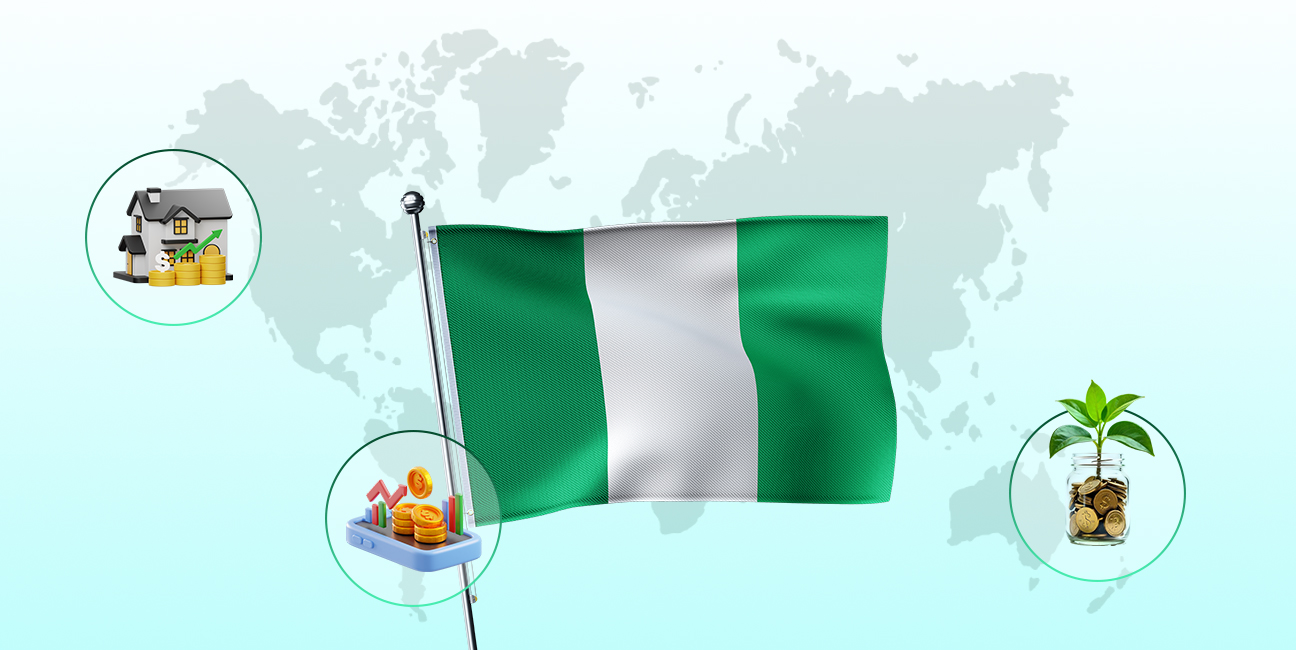
Have you ever looked at your bank account and wondered, “Is there a smarter way to grow my money than just saving it?” If yes, you're not alone. I’ve been...

As an Education graduate in Nigeria, the most accessible job offer for me is teaching in privately owned schools. The implication of this is working hard to earn a penny...
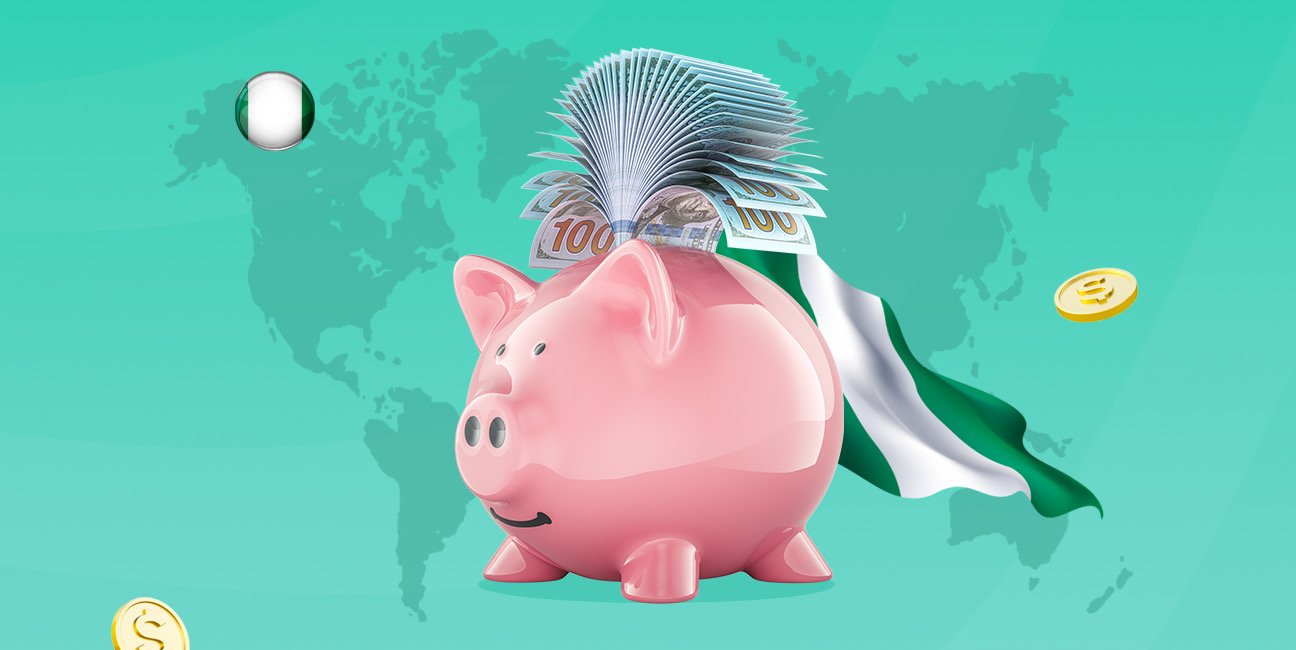
The Naira is weakening, which means your savings and investments are under threat. How do we know this? Well, the Nigeria Bureau of Statistics puts the current inflation rate at...
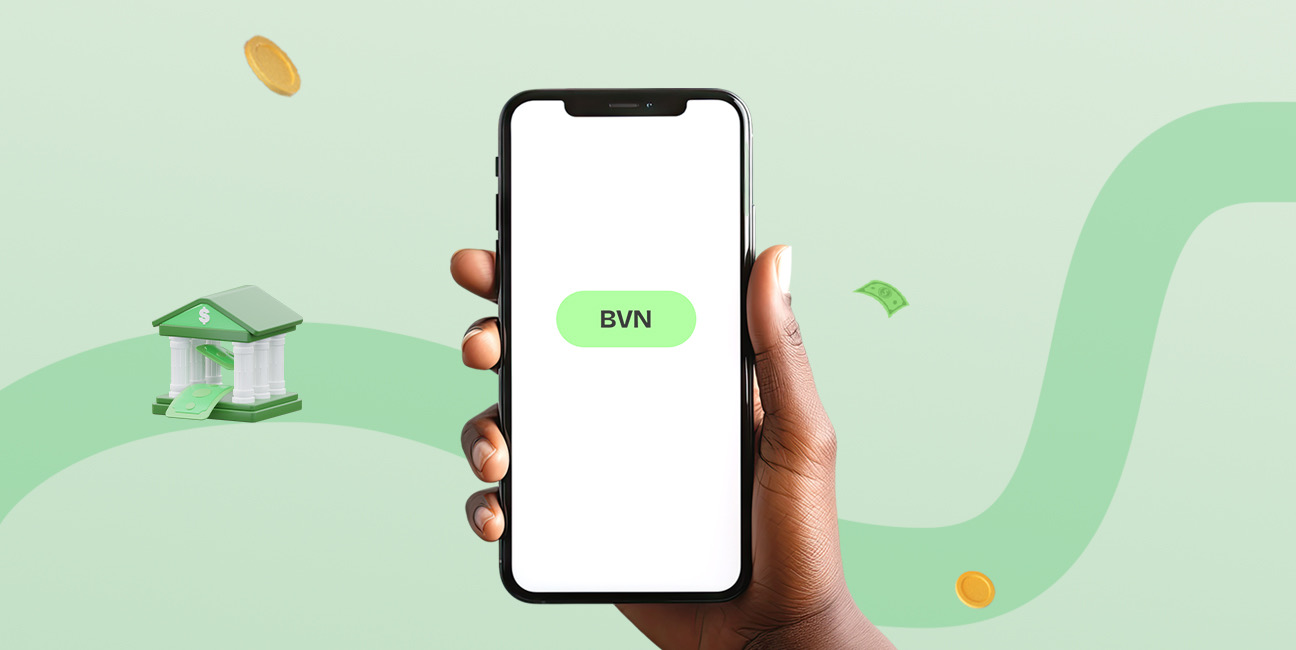
The Bank Verification Number (BVN) is a unique 11-digit number issued by the Central Bank of Nigeria (CBN) to every individual with a Nigerian bank account. It helps protect customers...
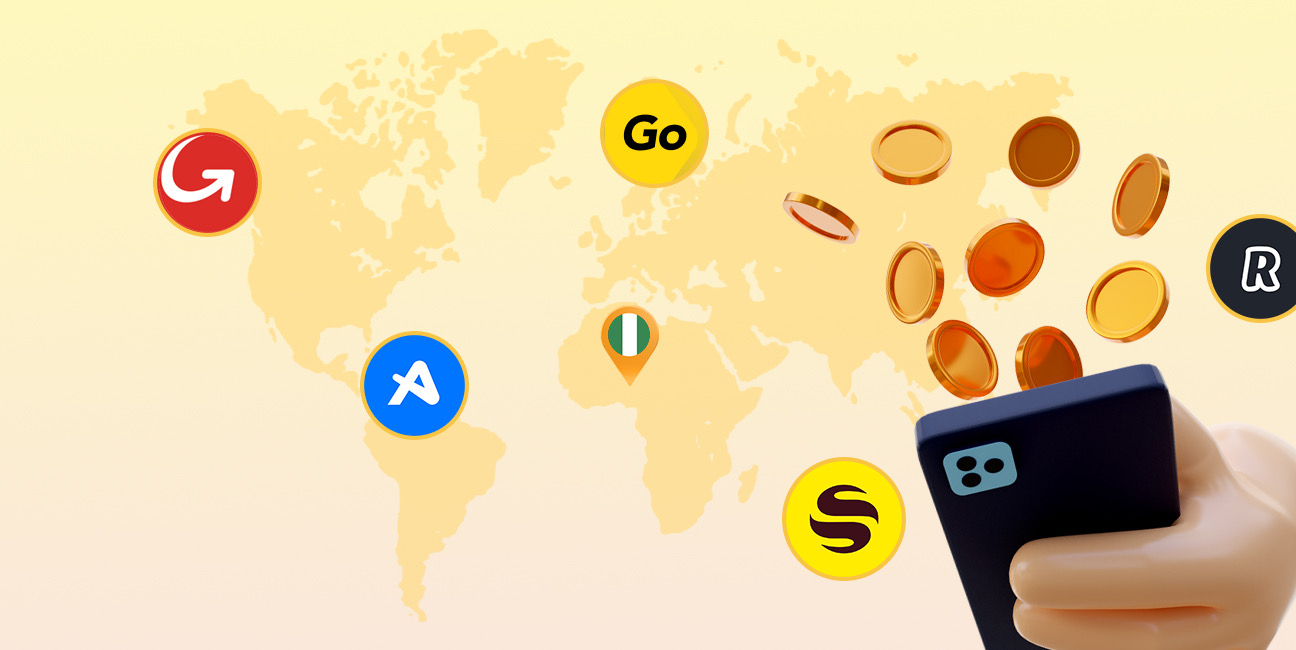
Have you ever found yourself Googling things like 'cheapest way to send money to Nigeria' because you’ve had a terrible experience with high fees, slow transfers, or confusing apps? I’ve...
Get the APP today to start enjoying amazing deals with #TopNOSHExperience.
